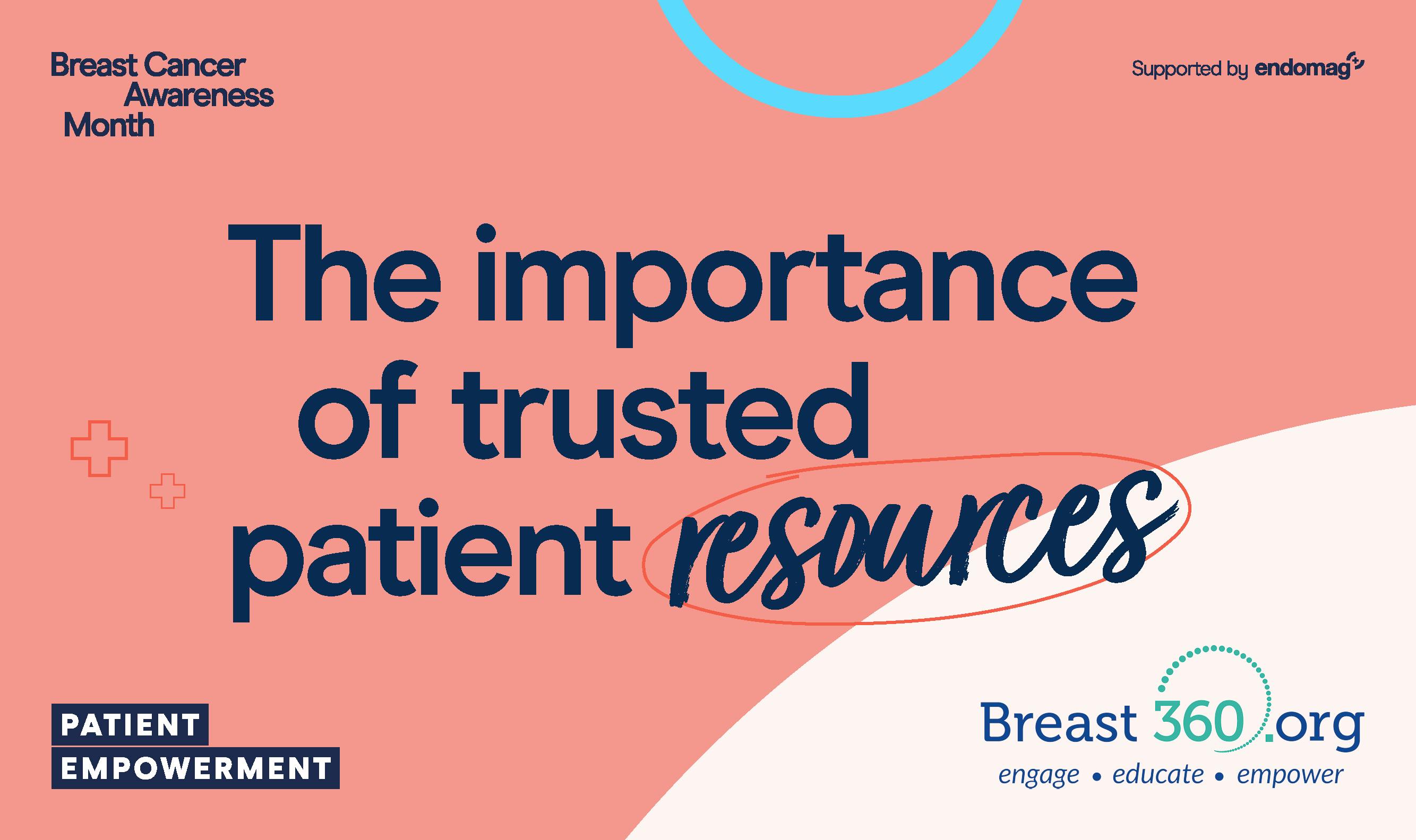Identifying reliable patient sources for breast cancer treatment information

Outside of the expertise of your hospital’s healthcare experts, trusted patient resources can be hugely helpful for providing additional support and highlighting the available options throughout the treatment pathway.
To understand more about the importance of these resources, we sat down with Ryan Cliche, the Executive Director at The American Society of Breast Surgeons Foundation.
He explained why platforms like Breast360 are so valuable and how patients can get the most out of them.
To those that don’t know, who are the ASBrS Foundation and what do you do?
The American Society of Breast Surgeons (ASBrS) Foundation is a 501(c)(3) charitable organization founded in 2005 to improve the standard of care for breast disease. We saw a need to empower and educate patients and provide peer-reviewed, reputable resources that could be used by breast surgeons and other health care professionals.
Since that time, the Foundation has continued to evolve and focuses on advancing breast care to all populations and enhancing the patient experience. One of the primary ways we’ve done this is through patient support programs.
We found that caregiver engagement and giving them the tools that they need enhances the patient experience, too; this is a focus of our patient support programs, and it sets us apart from other non-profit breast cancer patient advocacy organizations.
Another attribute that sets us apart is our collaboration with the members of the American Society of Breast Surgeons. We are in a unique position to educate, empower, and help direct patients to the care they need.
What resources and support do you offer?
The ASBrS Foundation offers a variety of ways that support health care professionals and patients and caregivers.
Firstly, we have the Breast360 website, which is a free, widely used online resource with easy-to-read articles, videos, a directory of nearby breast surgeons, and additional information. Breast surgeons use this website as a resource in their new patient packets.
All of our content and materials are peer-reviewed by breast surgeons on the Board and on committees of the ASBrS Foundation. We also periodically review our resources posted online to ensure that content is current and we are a reliable source of information.
We offer a number of online and in-person patient support programs during the year, facilitated by a multidisciplinary set of faculty. These also include providing tools to caregivers to enhance the patient experience.
The Foundation also funds grants for breast cancer research and community support and education programs produced by other patient advocacy organizations and institutions, increasing our impact.
How can patients use these resources in conversations with their primary care physicians?
Primary care physicians must stay abreast of not just breast cancer screening and treatment options but for other conditions their patients may have as well. So during your visit with your primary care physician, they will ask you a series of questions to help determine your overall health.
By reading articles or watching videos on sites such as Breast360, prior to your appointment with your primary care physician, you can prepare yourself to be able to better articulate your breast cancer diagnosis or where you are in your breast cancer journey.
What would your advice be to anyone who has recently received a breast cancer diagnosis for finding the right information?
One of the first things that people often want to do when they receive their breast cancer diagnosis is go to Google or some other general online search engine and start searching for everything they can find about their condition.
However, your search on Google is not peer-reviewed, so some of the resources that come up in your search may not have accurate information. Likewise, ChatGPT, while a fast resource for finding information and pulling from multiple sources, is not always accurate.
We advise patients and caregivers to use patient resources suggested by their doctor, which should be peer-reviewed and contain reliable information.